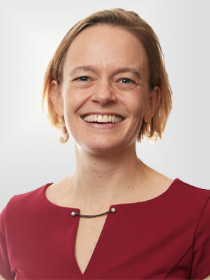
Debra Stulberg
Connect with Debra
About Debra
Stulberg's research focuses on reproductive health service delivery in the United States. Overarching themes in Stulberg's writing include incorporating reproductive health in primary care, addressing racial and socioeconomic disparities in pregnancy outcomes, and understanding how religious healthcare institutions affect care delivery. She directs the Reproductive Health Outcomes and Disparities (RHOADs) Research Group and co-directs the Research Consortium on Religious Healthcare Institutions.
Contributions
In the News
Publications
Presents that with pregnancy complications or seeking an abortion at Catholic and Protestant hospitals denials may be faced, delays encountered, and fewer treatment options may occur than they would at secular hospitals. Considers they may also experience financial obstacles and stigmatization as a result of restrictions.
Examines hospital restrictions on postpartum contraception due to religious affiliation restrict access, cause unnecessary delays in care, and lead to misdiagnosis and marginalization of contraceptive care. Reviews that restrictions also cause moral distress to providers who balance career repercussions and professional integrity with patient needs.
Suggests large employers have leverage to improve access to reproductive health services and providers. Argues that large employers could pressure insurance carriers to address network gaps in access to care resulting from religious restrictions.
Uses a nationally representative study of women of reproductive age to find that while 34.5% of women consider it important to know a hospital’s religious affiliation when seeking care, 80.7% consider it important to know a hospital’s religious restrictions on care. Additionally, a majority (two thirds) of women find religious restrictions on care during miscarriage management unacceptable.
Discusses how in this nationally representative survey of ob-gyns practicing in the United States, 52% of those who work in a Catholic facility report they have had conflict with their employer over its religious policies for patient care. This was significantly higher than at hospitals of any other religion (such as Protestant or Jewish hospitals).
Finds that among women in 14 states who receive Medicaid, those who have an ectopic pregnancy are significantly more likely to experience a serious short-term complication (such as blood transfusion, hysterectomy, sterilization, or prolonged hospitalization) if they are black, Hispanic, Asian, Native American, or Pacific Islander than if they are white.
Evaluates from a nationally representative survey of ob-gyns practicing in the United States and finds that while 97% encounter patients seeking abortion, only 14% provide abortion themselves. Finds that abortion provision is less common in the South (8.2%) and Midwest (8.8%) compared to the Northeast (25.5%) and West (19.3%) regions. Discusses how women ob-gyns and those working in an urban area are more likely to be abortion providers.
Finds that Ob-gyns working in Catholic hospitals who were interviewed for this paper report facing barriers to providing tubal ligations for patients who want them, even when the patient is having a c-section and wants a simultaneous tubal ligation (so that denying the procedure means requiring the patient to undergo a second surgery and anesthesia), or even when a future pregnancy would pose a serious health risk to the patient. Discusses how these barriers were reported by some physicians to pose additional hardship for patients with Medicaid or other financial or insurance barriers to care.
Evaluates in this nationally representative sample of primary care physicians practicing in the United States and finds that 43% had practiced in a religiously-affiliated hospital or practice, and of those, 19% had experienced conflict with the facility’s religious policies for patient care.